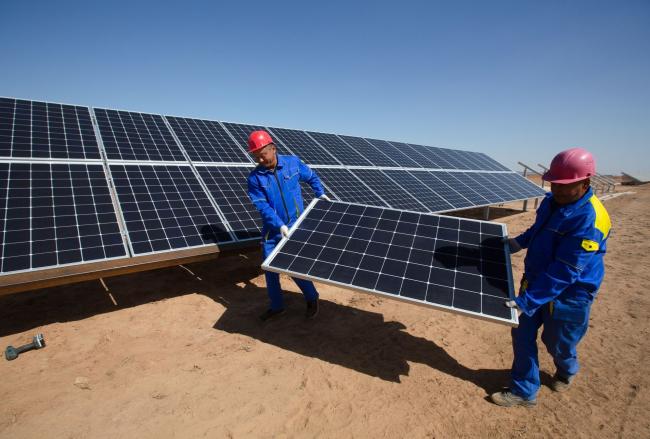(Bloomberg) -- Once a year, the International Energy Agency attempts to impose some order on the chaotic world of oil, gas, power and carbon by publishing detailed scenarios on how the next few decades might unfold.
Here are the four big takeaways from the 2020 World Energy Outlook, published on Tuesday:
Forecasting Is Harder Than Ever
Predicting the future of energy is an even greater challenge than usual this year, coming after what the IEA described as a disruption not seen since “World Wars and the Great Depression.”
Just about every global trend in fuel and power demand pivots on questions more suited to an epidemiologist than an energy expert: Will there be an effective and widely available vaccine for Covid-19? Will habits learned during lockdown, such as remote working and an aversion to flying, outlast the pandemic?
The IEA attempted to cut through this knot by offering one main scenario in which the pandemic is brought under control next year, and another that features prolonged virus outbreaks and lockdowns.
The gulf between the two outlooks is vast.
In the former, oil use recovers by 2023, in the latter it takes as long as a decade. Global electricity demand in 2030 in the pessimistic case is 27,000 terawatt hours lower than in the main scenario, equivalent to twice the consumption of Japan.
Coal Is Dying, Long Live Solar
The fuel that was once the staple of utilities will probably never return to pre-pandemic levels of demand. By 2040, coal’s share of the energy mix will fall below 20% for the first time since the industrial revolution, the IEA said.
Meanwhile, power produced from solar photovoltaics has become cheaper than electricity from plants fired by fossil fuels in most nations. Renewables will push coal off the grid, taking 80% of demand growth to 2030.
“I see solar becoming the new king of the world’s electricity markets,” said Fatih Birol, the executive director of the IEA. “Based on today’s policy settings, it’s on track to set new records for deployment every year after 2022.”
No Peak on the Horizon
Predictions of peak oil demand are very much in fashion, as even oil giants like BP (NYSE:BP) Plc say consumption may never again reach the heights seen in 2019.
The IEA, formed in response to the oil shocks of the 1970s and duty-bound to preserve the security of energy supplies, has long resisted such predictions.
The agency stuck to that position this year. Even its most pessimistic Covid-19 scenario showed petroleum consumption regaining pre-pandemic levels by the latter part of this decade, and plateauing there in the 2030s.
“In the absence of a larger shift in policies, it is still too early to foresee a rapid decline in oil demand,” the report said.
Even so, the agency tiptoed closer than ever to an acknowledgment that the petroleum industry is facing an historic change. “The era of global oil demand growth will come to an end in the next decade,” Birol said.
You Ain‘t Seen Nothing Yet
For all the once-in-a-century events triggered by the coronavirus pandemic, achieving net-zero greenhouse gas emissions by 2050 is an even bigger challenge.
This year, the IEA modeled for the first time how this might come about. “To reach net-zero emissions, governments, energy companies, investors and citizens all need to be on board – and will all have unprecedented contributions to make,” the report said.
There must be technological and behavioral changes on a massive scale. Nascent positive trends in power, transport, buildings, and humanity’s daily habits will need turbo boosters.
“There’s a lot of work to be done,” said Birol.
©2020 Bloomberg L.P.
